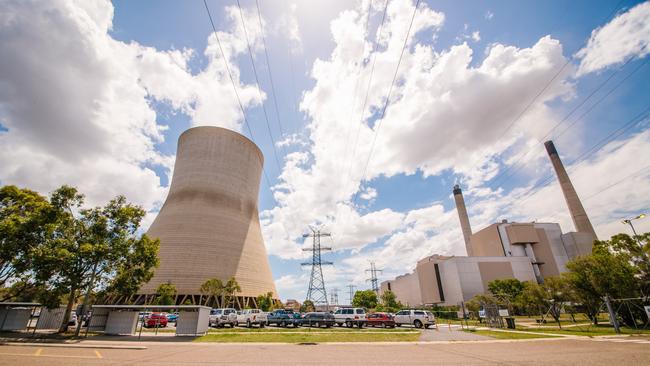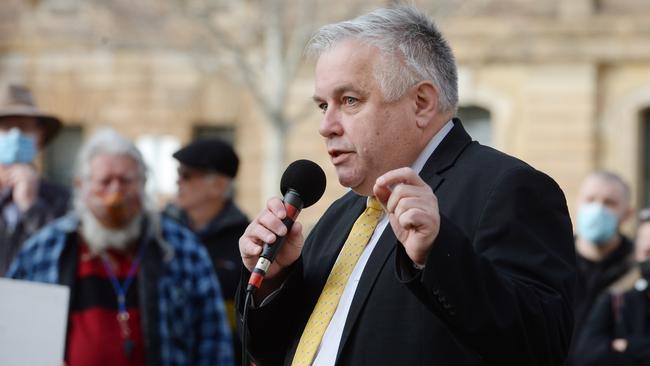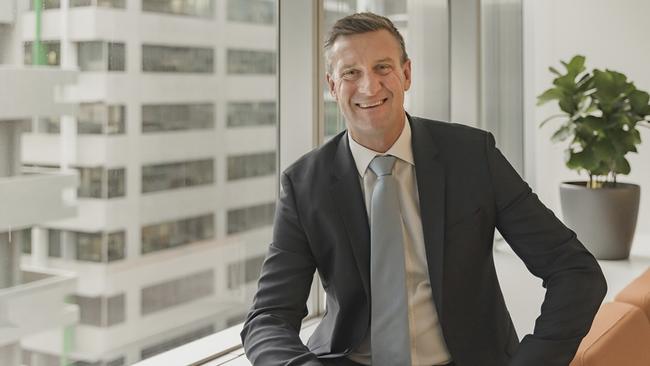
Will Queensland taxpayers ever learn the reasons for the 2021 explosion that crippled the Callide C power station? Probably not, if state-owned power company CS Energy has any say in it.
Queensland’s Callide C power station might have lurched back into the grid this month but CS Energy, its operator, seems dead-set on making sure the forensic report on the causes of the outage stays out of the public domain.
On Thursday Lawyers for CS Energy flagged plans to oppose any attempt brought by Czech power investor Sev.en – a part-owner of the plant – to subpoena drafts of a long-awaited report into the explosion that put Callide C out of action.
Callide C was out of service for almost three years after blowing up in May 2021, nearly crashing the east coast grid, and stayed out of service due to the mysterious collapse of a cooling tower in October 2022. The disaster has weakened the east coast grid and added to the pressure on household and business energy bills.
An expert review of the explosion was commissioned by CS Energy, conducted by forensic engineer Sean Brady – but that report remains in limbo, despite promises (dating back to January) that it will be released “soon”.
Sev.en has been doing the Lord’s work in trying to blast loose Brady’s findings. It has been brawling since December with the administrators of the company that owned its part-share in Callide, Richard Hughes and Grant Sparks from Deloitte.
In January Sev.en won a federal court fight to appoint special purpose administrators to the company, tasking FTI’s John Park and Benjamin Campbell with the job of investigating the causes of the explosions.
Sev.en is hardly acting selflessly here, to be fair. Their central contention is that CS Energy’s failure to maintain the plant properly was the cause of the twin catastrophes and want to prove it, presumably to open the way to suing the state-backed company to recover their losses.
But CS Energy is certainly acting like a company with something to hide.
Sev.en was back in court on that front on Thursday, bringing an action to try to remove Deloitte from the picture permanently. That matter now won’t be heard until June, but in discussions around the scheduling of the case the
Czech investor flagged an intention to subpoena whatever has been completed of Mr Brady’s report.
Enter lawyers for CS Energy, who told the court their client was likely to oppose any attempt to subpoena Mr Brady’s work. They didn’t say why, citing professional legal privilege, but suggested the battle over access to the documents could take some time.
So, here we are. Three years on and a taxpayer-owned company is planning to use taxpayer dollars to try to block taxpayers from finding out what happened at a power plant being run by that same taxpayer-owned company.
Only the worst kind of cynic would suggest that an upcoming state election might have something to do with its recalcitrance, of course.
Snowy snow job
Queensland government companies are hardly the only ones with a commitment to fighting the release of embarrassing documents, mind you.
Former South Australian senator Rex Patrick has been trying since September to get federal Energy Minister Chris Bowen to release the business case for the last Snowy Hydro 2.0 blowout – which took the costs of the project from about $5bn to $12bn.

It’s a fair question, given Snowy is fully owned by the public. And no surprises, the former submariner hasn’t had much luck.
The latest round in the fight will take place in a week, as Patrick tries to move an appeal against refusal of freedom of information requests into the Administrative Appeals Tribunal, rather than leave them with the government’s lame-duck Information Commissioner’s office, where they will likely languish for years.
The AAT is likely to make a decision much more quickly, which is probably why both Bowen’s department and Snowy Hydro have briefed lawyers to oppose the move at next week’s hearing on the subject.
Bennett’s back
Speaking of Snowy Hydro, the boss of failed Perth engineering firm Clough, Peter Bennett, could probably have picked a better time to re-emerge from the corporate wilderness.
Earlier this week Clough’s social media channel’s began spruiking Bennett’s appearance at a May breakfast with WA Business News, promising a candid conversation about the company’s “road to revival”.
For those playing along at home, the venerable WA engineering company went bust in late 2022 and was bought out for a song by Italy’s Webuild, its partner in building the Snowy Hydro project.

But Clough’s narrative suggests that its “transformative journey” through voluntary administration is a tale of resilience and success – as rosy an interpretation of going bust as Margin Call has ever heard.
Sadly, in an epic piece of poor timing, the promotion hit Clough’s social media channels only days after news of fresh blowouts at the Waitsia gas project – one of Clough’s major remaining jobs – crashed the share price of Kerry Stokes-backed Beach Energy.
Beach owns Waitsia with Japan’s Mitsui and said on Monday it had discovered “further quality issues” with construction of the plant, pushing back production by another six months. It said the total cost could come in to as much as $1.3bn.
That’s up from $700m to $800m when Beach and Mitsui first approved the development in late 2020. First production was originally expected in late 2023; that is now early 2025.
Bennett’s appearance has raised a few eyebrows among Clough alumni, who haven’t forgotten he was at the helm when the remains of the company were bought by Webuild for about $36m, a far cry from the $1bn market capitalisation the company once commanded.
No doubt the audience will be thrilled to hear Bennett’s reflections on what the company has learned from its recent history, and discuss “how we’re embracing cutting-edge technology and innovation in engineering while leveraging lessons from the past”.
You’d guess Beach and Mitsui won’t be booking tables for the event, though.






To join the conversation, please log in. Don't have an account? Register
Join the conversation, you are commenting as Logout